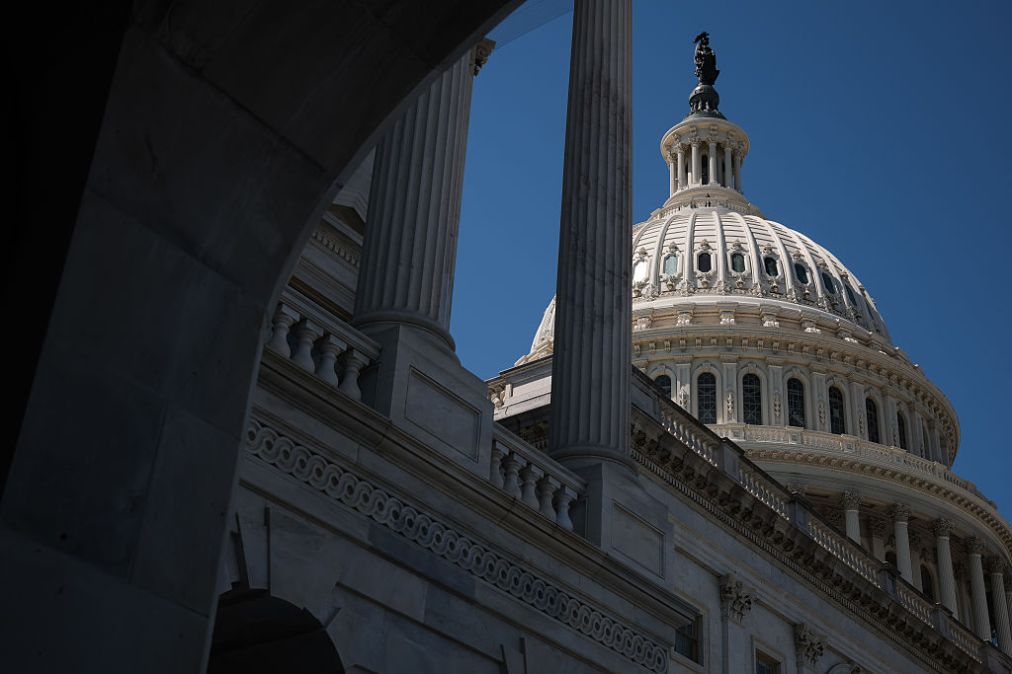Lawmakers to explore National Quantum Initiative’s future with industry experts

A panel of private sector quantum executives are set to testify Wednesday before the House Committee on Science, Space and Technology, where they’ll spotlight intensifying challenges associated with China’s leadership in the emerging field and urge lawmakers to prioritize new investments to ensure America is well-equipped for the future.
“The purpose of the hearing is to evaluate the state of U.S. quantum research, development and technology and the current position of the U.S. quantum industry,” Executive Director of the Quantum Economic Development Consortium (QED-C), Dr. Celia Merzbacher, told DefenseScoop on Tuesday.
Merzbacher was tapped to serve as a witness at the upcoming hearing, alongside senior officials representing Microsoft, PsiQuantum and Google.
Quantum information science (QIS) and other related technologies apply complex phenomena happening at atomic and subatomic levels to store, transmit, manipulate, process and measure data and information. They’re largely anticipated to spark revolutionary advancements in the coming decades, like encryption-breaking algorithms and unhackable communication networks.
This latest hearing comes as Congress members are exploring plans to reauthorize the National Quantum Initiative Act, which President Donald Trump signed in late 2018 during his first presidential term. The legislation sought to accelerate quantum-enabling research and development across the U.S., partly by directing the government to spend more than $1.2 billion to advance technology-driving initiatives over the following five years.
“The committee is reviewing the NQI Act to date, the importance of quantum to the economy and national security, and what policies should be considered as the committee considers reauthorization of the act,” Merzbacher said.
QED-C is a National Institute of Standards and Technology-backed group of cross-sector companies and stakeholders that work to strategically address quantum-related technology, standards and workforce gaps. The consortium was codified in the NQI legislation and Merzbacher has helped steer it since the early days.
“Congress should reauthorize the NQI to keep up the pace of discovery and development. Now more than ever, QED-C can help connect and support the quantum ecosystem to accelerate progress,” she said.
In her view, the law “built a strong foundation of multidisciplinary research that is advancing science and training” of quantum personnel, and those programs need to be sustained. Further, she noted, “enormous strides” were made in the private sector with support from the NQI.
Building on that progress, Merzbacher said the United States’ federally-funded quantum research enterprise should be more deeply connected to and engaged with industry. She aims to articulate those and other recommendations to lawmakers at the hearing, including that NQI “should enhance infrastructure for fabrication, characterization and testing of prototypes.”
Her testimony will also reference a range of what she sees as “hallmarks of a growing Chinese quantum industry” that could put America and its allies at risk. She’ll point to an analysis of highly-cited research publications, which argues that while the U.S. leads the world in quantum computing, China is ahead in quantum communication, quantum sensors, post-quantum cryptography and other areas that are vital to the quantum supply chain.
“Reliance on Chinese suppliers for critical quantum components poses risks that supply could be restricted or shut down altogether. This would pose threats to the U.S.’ ability to acquire quantum technology for both government and commercial applications,” Merzbacher said.
Offering several examples, she noted that many quantum systems require lasers that operate at specialized wavelengths — and China has become a dominant supplier of many optical and photonics components, including advanced lasers.
“Competition remains fierce. The investments in China are hard to verify, but the outputs in terms of publications and patents continue to grow rapidly. And competition extends beyond the U.S. and China, to include countries around the world. The race to be ‘first to market’ is on,” Merzbacher told DefenseScoop.





